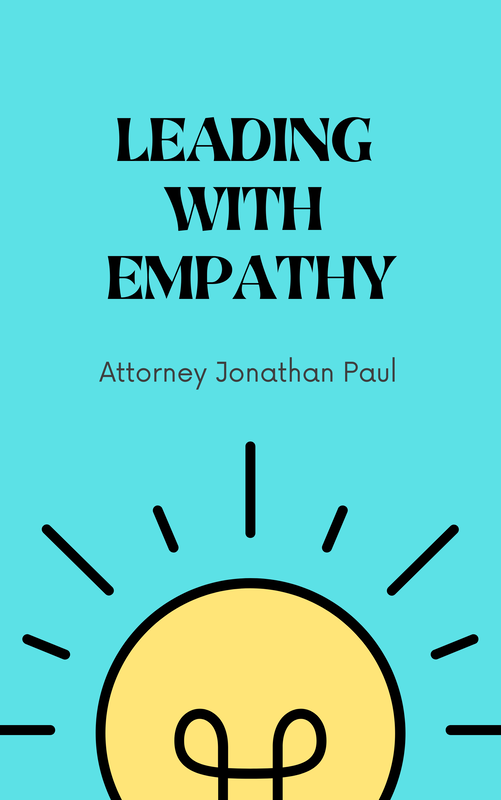Leading with Empathy - Step #4As we adopt transformative change in a client's case, we must do so without authority. While we are a party in the case, we hold very little formal power to make things happen during the pendency of the case; the prosecutor controls the charges, the judge controls the structure, the dates, bond and the tone, the police controlled the arrest, and probation might control your life for many years.
We must do so without formal authority, but that is a good thing; formal authority is telling someone to do something, and that is not the most effective way to get results. Most people tell others what to do, or as an example how to change their dance, but informal authority means changing the music, and allowing the people to self-adopt a change in their actions; this is the power of informal authority. To achieve transformative results, we must be leaders, and live the values which we wish to adopt, and to push forward with our future. We must earn the trust of the power brokers, we must have them understand us, we must attract a commitment from them, but we cannot tell them what to do, we must challenge their thinking, and allow them to come to their own conclusion. My clients can all be transformative leaders; they do not need to be superheroes to have the prosecutor and judge completely change their view of the case. We must use our informal authority to get everyone committed to the common good of the outcome of the case; if someone is not committed then we will not succeed; it takes getting everyone onboard. When everyone is onboard, we get the maximum outcome. Real life example of Transformative leadership without authority With a complicated case, comes many moving parts. A great example is a second offense drunk driving case where the evidence against my client is clear as a day and they have no realistic defense to the crime. They are facing mandatory jail and loss of a driver's license for a year; as a team, we set a goal to avoid upfront jail and earn driving privileges so the client can maintain a relatively normal life behind the wheel. A step toward these goals is sobriety court, but many sobriety courts exclude individuals based on geographic location of the offense, or where the client lives. If the client does not qualify for sobriety court in the court where the offense happened, then I will pursue a transfer to a different sobriety court. This is loaded with obstacles and moving parts, because one judge, becomes two judges, one probation officer becomes two, and so forth. In order to make this happen, everyone from both courts needs to be onboard and focused on the same outcome. As the attorney on the case, I have no formal authority to make this magic happen, but I pick the right music and put the right wheels in motion, allowing all parties in the case to come together for the common good of my client. Comments are closed.
|
Available on AmazonJonathan Paul- X-Prosecutor |
